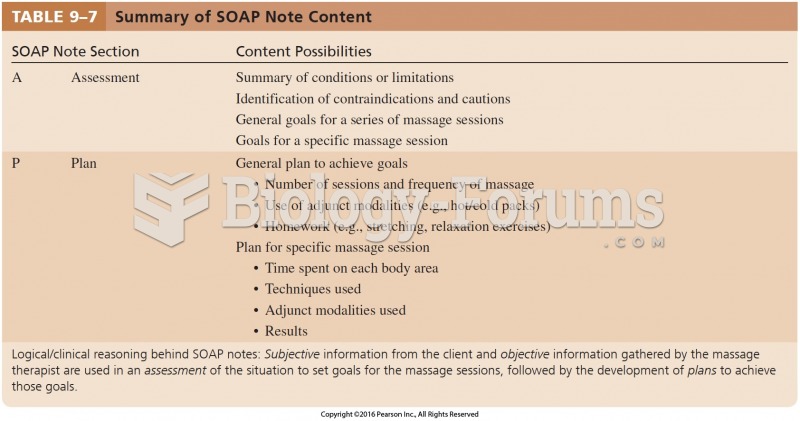|
|
|
The term pharmacology is derived from the Greek words pharmakon("claim, medicine, poison, or remedy") and logos ("study").
There are actually 60 minerals, 16 vitamins, 12 essential amino acids, and three essential fatty acids that your body needs every day.
Astigmatism is the most common vision problem. It may accompany nearsightedness or farsightedness. It is usually caused by an irregularly shaped cornea, but sometimes it is the result of an irregularly shaped lens. Either type can be corrected by eyeglasses, contact lenses, or refractive surgery.
Fungal nail infections account for up to 30% of all skin infections. They affect 5% of the general population—mostly people over the age of 70.
Anti-aging claims should not ever be believed. There is no supplement, medication, or any other substance that has been proven to slow or stop the aging process.
 Gallbladder with gallstones. Note the stones in the hepatic duct, gallbladder, and common bile duct.
Gallbladder with gallstones. Note the stones in the hepatic duct, gallbladder, and common bile duct.
 When the United States gets stuck over a controversial issue—usually something a divided Congress ca
When the United States gets stuck over a controversial issue—usually something a divided Congress ca





